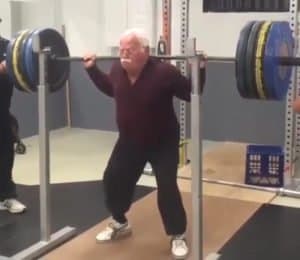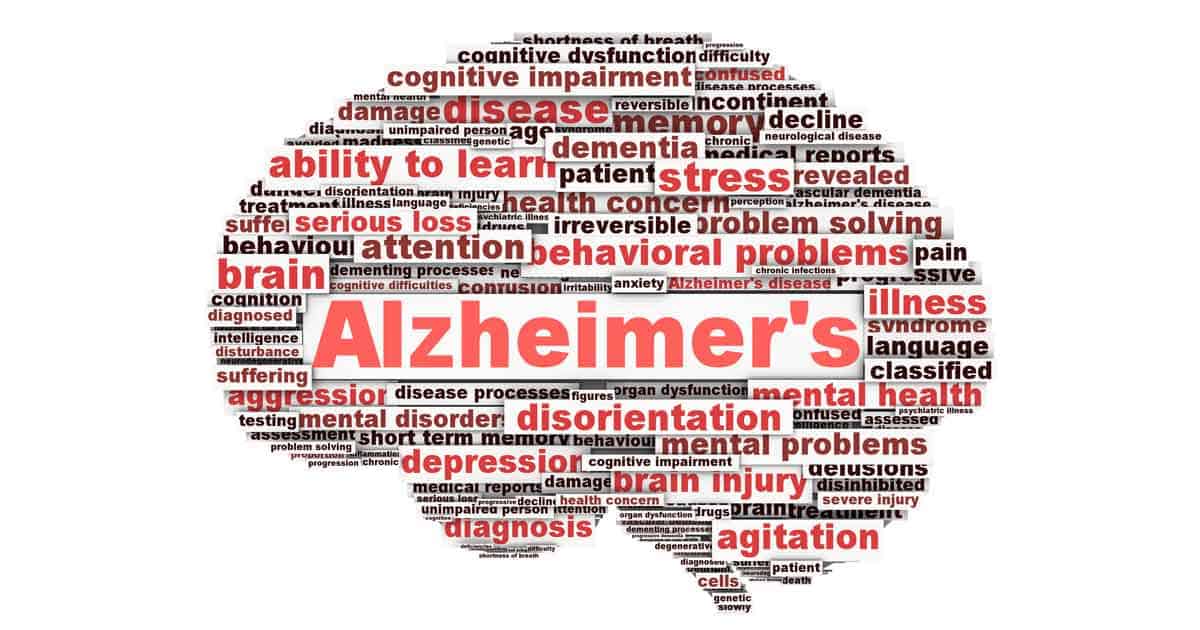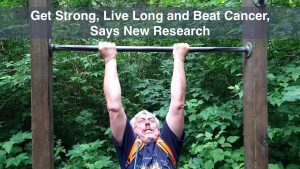Why You Must Build Muscle As You Age
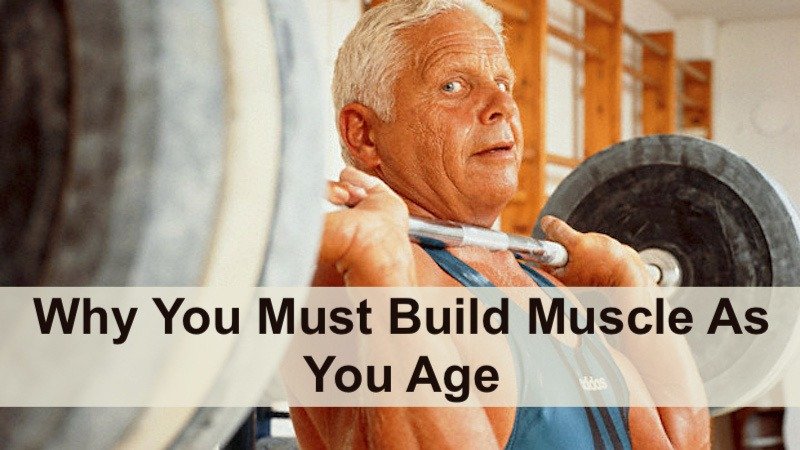
You must build muscle as you age to improve your healthspan — those years over which you can be healthy and thrive. It’s about the most important thing you can do to live long and strong.
OVER THE last few days I’ve been visiting friends in a small pristine town in the southwestern tip of Sweden along the Baltic Sea called Falsterbo, often referred to as the Swedish Riviera.
Falsterbo is mostly known as a holiday destination where Swedes and a small assortment of other nationalities, like me, go to spend their summer vacations. The beaches of Falsterbo are known for their white sand and family-friendly bathing opportunities, which I’ve observed begins in the early morning and then again before or after dinner.
Falsterbo is also known for one of the better golf courses in Europe – Falsterbo Golf Club — as well as for the annual International Horse Jumping Grand Prix (part of the Falsterbo Horse Show) every July.
All interesting stuff, perhaps, but the one thing I want to focus your attention on is the activity level of the older Swedes here. Age slows nobody down. The elderly are commonly seen shuffling thru the pure white sand to the sea, some bent and hobbling, but steadfast in their aim to wade into the warm and gentle waters and swim for hours on end.
This got me thinking about the importance of regular physical activity irrespective of age. You must exercise if you want your Golden Years to be healthy.
We must exercise for longevity to fight sarcopenia (muscle wasting), deteriorating cognitive capacity and disease. We must exercise to prevent our bodies from becoming pudgy as fat replaces muscle.
Let’s touch on each of these.
Build Muscle As You Age
You start losing muscle during your thirties due to age-related sarcopenia, which is muscle loss, as much as 3% to 5% each decade for inactive people
Resistance training can help your neuromuscular system, hormones, mobility, balance, muscularity and strength. It also can improve an older adult’s ability to convert protein to energy in as little as two weeks.
Cheryl Forberg RD, Nutritionist for NBC’s The Biggest Loser puts it like this:
“As you age, a number of changes occur in your skeletal muscles, which are the ones that move your arms, your legs and the rest of your body. You lose muscle mass — you simply have less of the stuff. Your nervous system becomes less efficient at prompting your muscles to move. Fat and connective tissue start developing within your muscles, leaving less muscle tissue to contract to move your body.”
As I enumerated in 3 Expert-approved Anti-aging Exercise Routines You Can Do and Why You Should Bother, this is what you can expect when you exercise regularly, particularly if you do resistance training:
- You’ll re-ignite your metabolism, reprogramming your body so you can readily start burning fat right away.
- You’ll reboot your endocrine system, creating a resurgence of youth enhancing hormones so can get infinitely more energy—and replace flab with lean, strong muscle while boosting your sex drive.
- You’ll fortify your body by regaining bone density, muscle and building a solid foundation.
- You’ll boost your brain power, enhancing memory and improving your cognitive function making you as sharp as a tack.
- You’ll dramatically decelerate your body’s aging process, such that your biological age will age slower than your chronological age—making you look and feel younger with each year that passes.
There’s even a type of protein that has been shown to slow the aging process by slowing down muscle degradation.
Researchers at Liverpool and the University of California discovered this protein, called a Heat Shock Protein, or “HSP10”:
“HSP10 helps to monitor and organize protein interactions in the mitochondria, and responds to environmental stresses, such as exercise… by increasing its own production which can then halt the aging process by preserving muscle strength.“
Go here and here to get some exercise routines and ideas so you may build muscle as you age.
Reduce Fat by Building Muscle
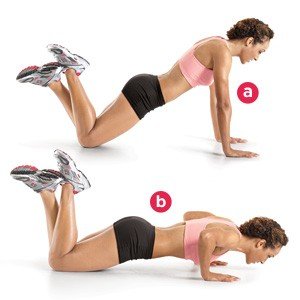 It’s really hard to whittle away fat if you don’t simultaneously build muscle
It’s really hard to whittle away fat if you don’t simultaneously build muscle
Muscle burns calories.
I presume you’re sitting while reading this. Just sitting there, doing nothing much more than moving your eyes, still burns calories a bit — and the more muscle you have, the more your burn, just sitting.
Surely, when your metabolism declines, all other things being equal (such as the number of calories consumed), fat happens. But the body is a complicated thing where nothing happens by itself or in isolation. It’s not just a slower metabolism that contributes to making us fatter as we get older and our ignored muscles vacate the premises. Insulin does us in as well.
The insulin effect happens this way:
Muscles consume glucose (blood sugar) big time, but glucose needs insulin in order to enter cells and be used as energy. If your muscle mass erodes but the amount of blood sugar stays the same, there’s less capacity to use it and you become insulin resistant. This puts you at greater risk for Type 2 diabetes, which in turn raises your risk of heart disease, stroke and, perhaps, Alzheimer’s.
A pretty good incentive to build muscle as you age, yes?
Maintain Brain Function
You need to exercise for longevity because regular exercise changes the brain to improve memory and thinking skills, says Harvard Medical School.
It’s now accepted that overall fitness is associated with higher cognitive function and learning. Moreover, older adults with high aerobic fitness have higher hippocampal volumes and better spatial memory, providing additional protection from the age-related decline in brain volume.
The direct benefits of exercise are derived from its ability to cut insulin resistance, reduce inflammation, and stimulate the release of growth factors—chemicals in the brain that affect the health of brain cells, the growth of new blood vessels in the brain, and even the abundance and survival of new brain cells, says Harvard.
Indirectly, exercise improves mood and sleep, and reduces stress and anxiety. Problems in these areas often cause or contribute to cognitive impairment.
Dramatically Reduce Your Risk of Chronic Disease
In this study, scientists conducted a thorough review of the relationship between the lack of exercise and chronic disease.
Their conclusions:
- Chronic diseases are major killers in the modern era.
- Physical inactivity is a primary cause of most chronic diseases.
- You must exercise for longevity.
According to new research out of University of Sydney, strength-based workouts may be just as important as aerobic ones.
The study, published in the Journal of Epidemiology, looked at the exercise habits of over 80,000 people over time. Here’s what they discovered about people who performed strength-based training:
- They had a 23% reduction in risk of premature death by any means; and
- They was a 31% reduction of cancer-related death. (Interestingly, aerobic exercise had almost no impact on cancer death rates.) (Read more here.)
The aim is not to become muscle-bound, but to become functionally strong, keep up muscle if you have any, or to build some if you don’t.
Functional strength is needed to support your ability to move yourself in the world and deal with whatever you might meet, such as picking something heavy up and carrying it up a flight of stairs, even if that something is your very own body.
Your Takeaway
While you might think that it’s near impossible to build muscle as you age, particularly in your seventh decade and beyond, the truth is that muscle will grow as long as it gets sufficient stimulus.
Walking slowly down a flat road is not sufficient stimulus to build muscle as you age, but walking quickly up a steep hill will build the muscles in your glutes, thighs and calves.
Lifting dishes over your head to place them in a cupboard is insufficient to build muscle as you age, but pressing dumbbells heavy enough to limit your repetition capacity to ten will build the muscles in your shoulders.
Pressing yourself away from the wall will not build your chest, but push-ups will, even if done on your knees to start out.
So, here’s your takeaway:
- Grab a buddy to exercise with
- Find a muscle-building routine to do
- Do it consistently
- Progressively make it harder so you don’t stay on cruise control
Last Updated on August 5, 2018 by Joe Garma


